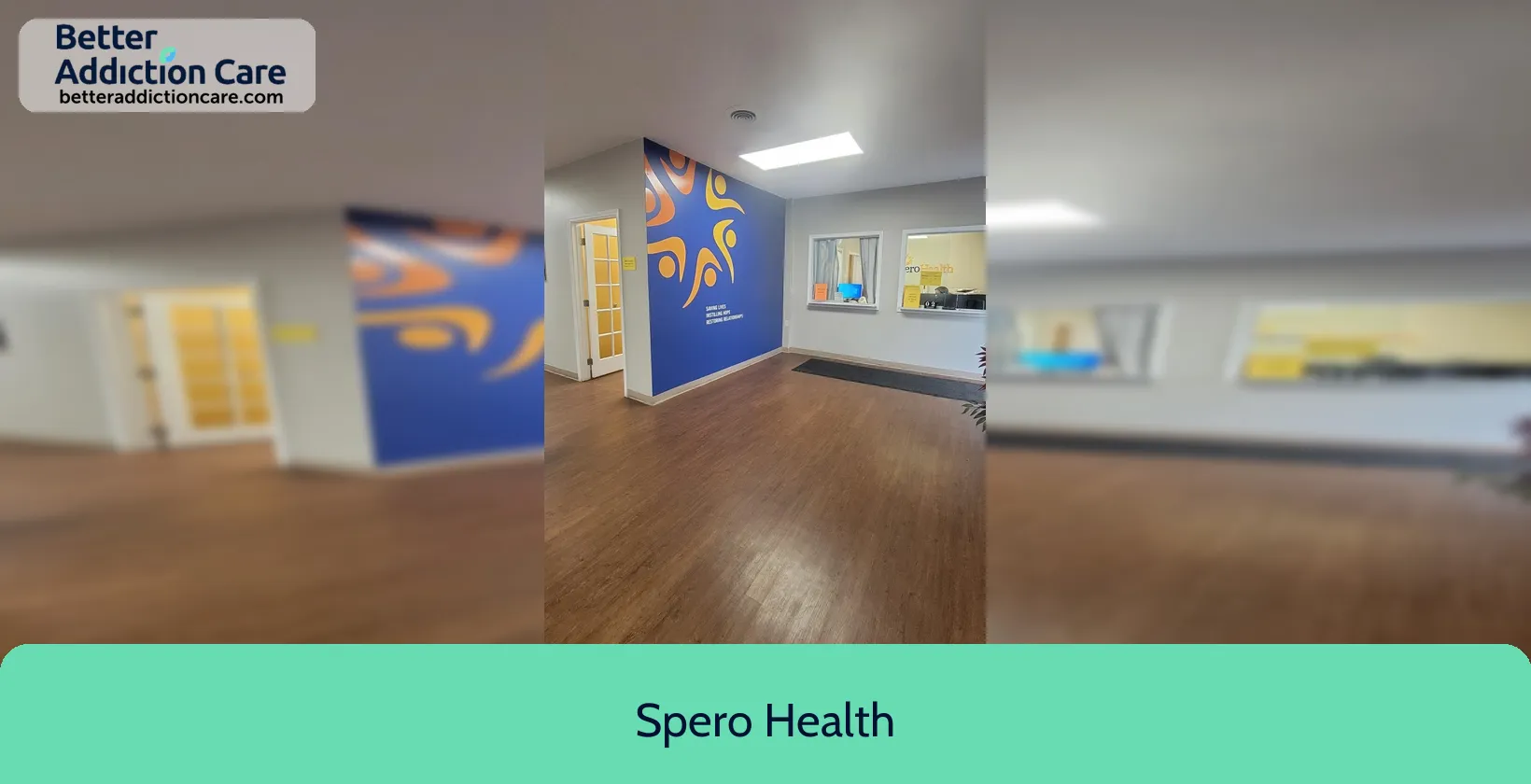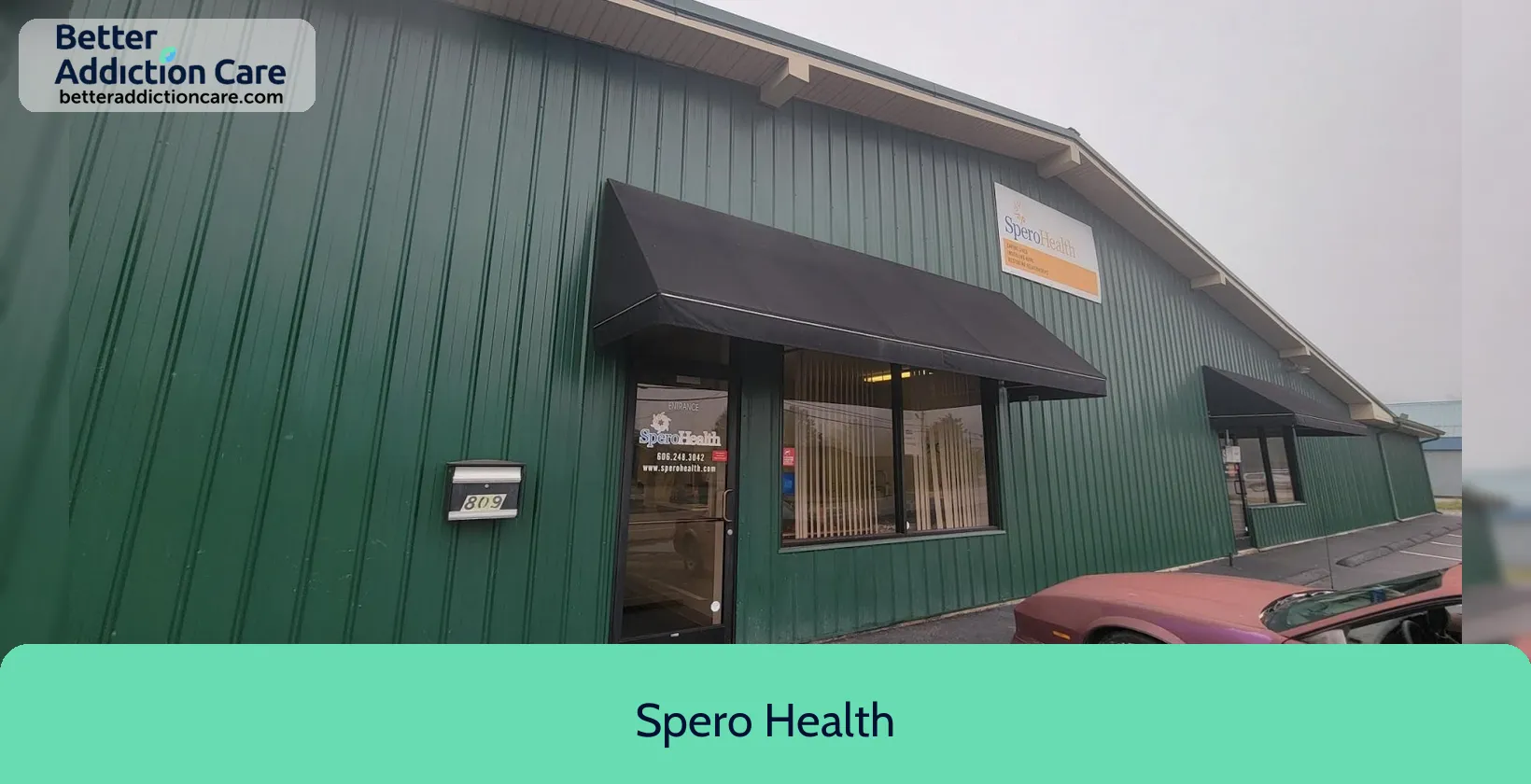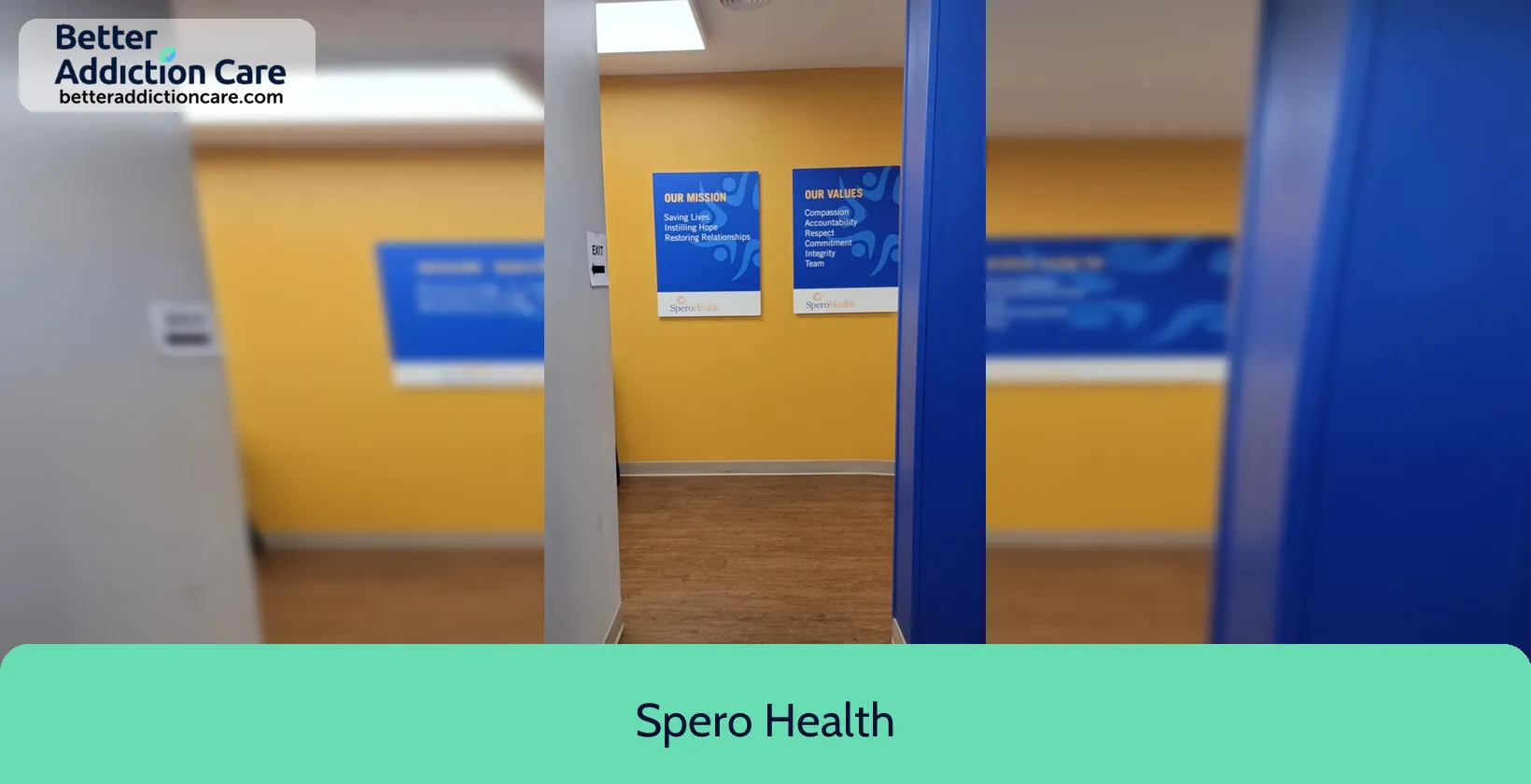Spero Health
Overview
Spero Health is an accredited substance abuse treatment center that provides outpatient detoxification, for men and women between 18 and 65+ years of age. As part of their special programs, Spero Health treats pregnant/postpartum women, clients who have experienced trauma, and clients with co-occurring mental and substance use disorders. To help patients achieve sobriety, Spero Health provides intake assessments. Afterward, patients receive 12-step facilitation, group counseling, and family counseling during treatment. Spero Health is located in Middlesboro, Kentucky, providing treatment for people in Bell County, accepting no payment accepted, private health insurance, and medicaid.
Spero Health at a Glance
Payment Options
- No payment accepted
- Private health insurance
- Medicaid
- Monthly
- Cash or self-payment
Assessments
- Comprehensive mental health assessment
- Comprehensive substance use assessment
- Screening for tobacco use
- Outreach to persons in the community
- Screening for mental disorders
Age Groups
- Adults
- Young adults
- Seniors or older adults
Ancillary Services
- Case management service
Accreditations
Commission on Accreditation of Rehabilitation Facilities (CARF):

Established in 1966, the non-profit organization known as the Commission on Accreditation of Rehabilitation Facilities (CARF) has a dedicated focus on accrediting rehabilitation organizations. CARF's primary mission is to assist service providers, particularly rehabilitation facilities, in upholding and promoting the highest standards of care.
Treatment At Spero Health
Treatment Conditions
- Mental health treatment
- Alcoholism
- Opioid Addiction
- Substance use treatment
- Co-occurring Disorders
Care Levels
- Intensive outpatient treatment
- Detoxification
- Aftercare
- Outpatient
- Outpatient methadone/buprenorphine or naltrexone treatment
Treatment Modalities
- 12-step facilitation
- Group counseling
- Family counseling
- Individual psychotherapy
- Trauma-related counseling
Ancillary Services
Additional Services
- Pharmacotherapies administered during treatment
- Holistic Treatment
- Drug or alcohol urine screening
Special Programs
- Pregnant/postpartum women
- Clients who have experienced trauma
- Clients with co-occurring mental and substance use disorders
- Veterans
- Active duty military
Contact Information
Read our Most Recent Article About Drug Addiction
DISCLAIMER: The facility name, logo and brand are the property and registered trademarks of Spero Health, and are being used for identification and informational purposes only. Use of these names, logos and brands shall not imply endorsement. BetterAddictionCare.com is not affiliated with or sponsored by Spero Health.
Your Addiction Doesn't Have To Define Who You Are.
You deserve high-quality treatment and a fulfilling life in recovery.
By calling us, you agree to our Terms & Conditions











